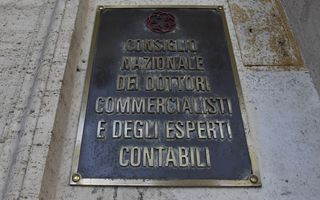(Finance) – It’s called “The Future of Non-Profit Organizations: Opportunities and Limitations” the document edited by the study commission “ETS Third Sector Bodies” of the National Council of Accountants, chaired by Lucio Aricò, within the area of delegation “Third Sector Bodies” entrusted to the national councilors Michele de Tavonatti and David Moro.
The document proposes a summary table of the current and future legal and tax discipline of Onlus (Non-profit organizations of social utility) which takes into consideration two different scenarios: that of the non-profit organizations that will register with the RUNTS (National Single Register of the Third Sector), with a focus on when to make this choice, and that of the non-profit organizations that, by choice or by specific provision, will not or will not be able to register with the Single Register, examining in depth the reasons and consequences deriving from the failure to register.
The Third Sector Code (CTS), in fact, repeals with a “deferred” effect articles 10 to 29 of Legislative Decree no. 460/1997 establishing the Onlus, identifying their effective date (in the subsequent article 104) starting from the tax period following the authorization of the European Commission (art. 101, paragraph 10 of the CTS) and, in any case, not before the subsequent tax period of operation of the RUNTS.
The forecast allows non-profit organizations to continue to operate until 31 December of the tax period in which the European Commission’s opinion will be given, the second condition provided for by the aforementioned art. 104 of the Third Sector Code having already occurred, starting from November 2021, with the start of the RUNTS.
In light of this legislative provision, the entities currently holding the tax qualification of Onlus pas a result of the registration in the Registry Office held by the Revenue Agency, they will be called, by March 31st of the financial year following the occurrence of the two above-mentioned situations, to make a choice and to foresee consequent hypotheses of change.
In order to fully grasp the different possibilities and the motivations underlying them, The publication traces the legislation regulating non-profit organizations, providing accountants with the main indications to enable a conscious transition into the world of the Third Sector.
